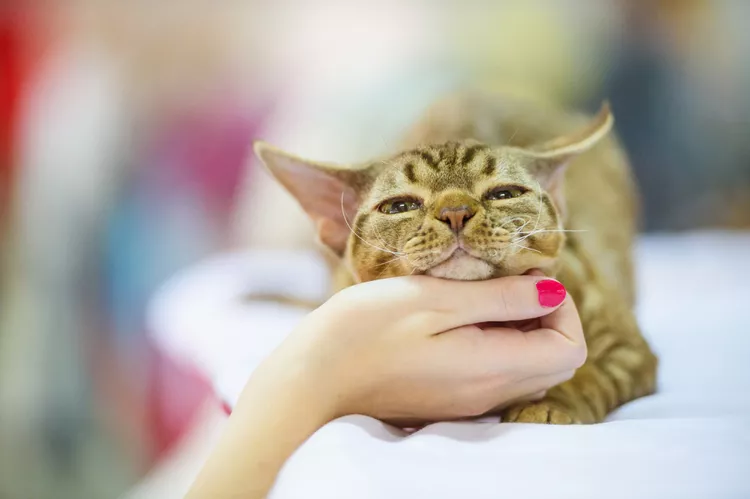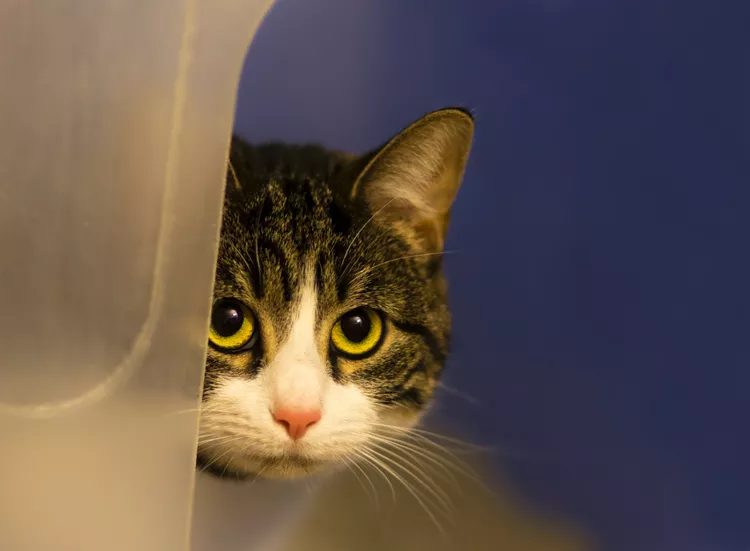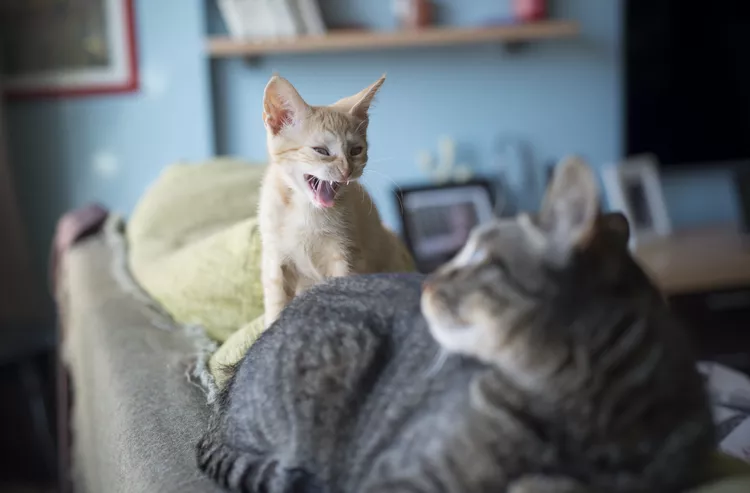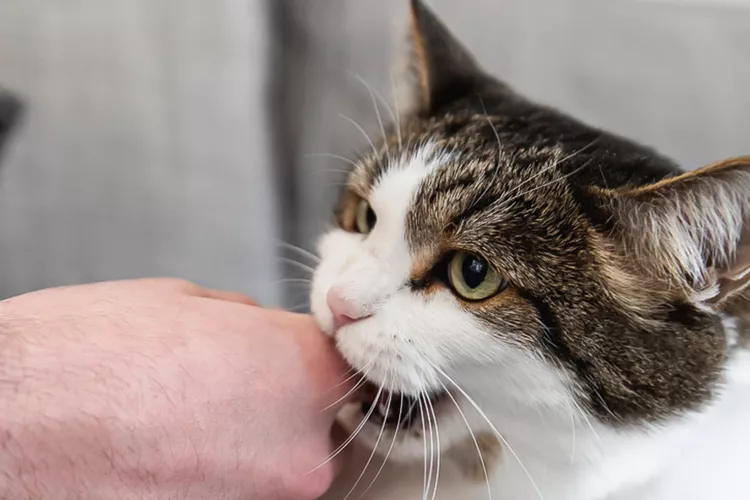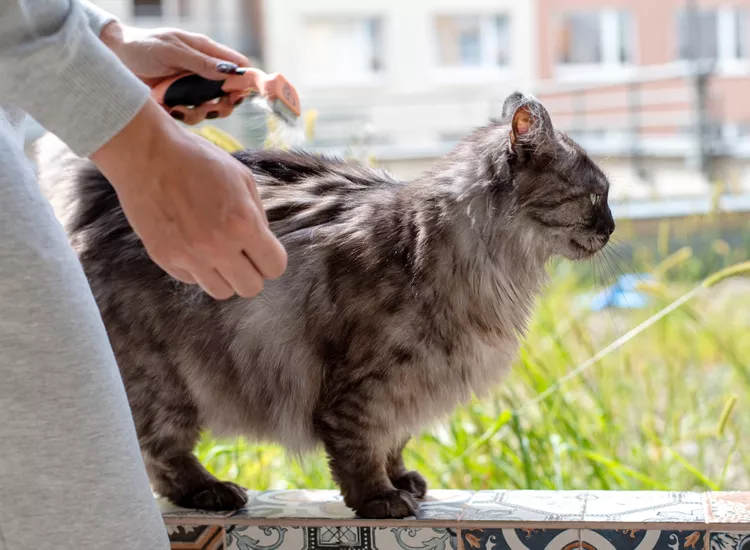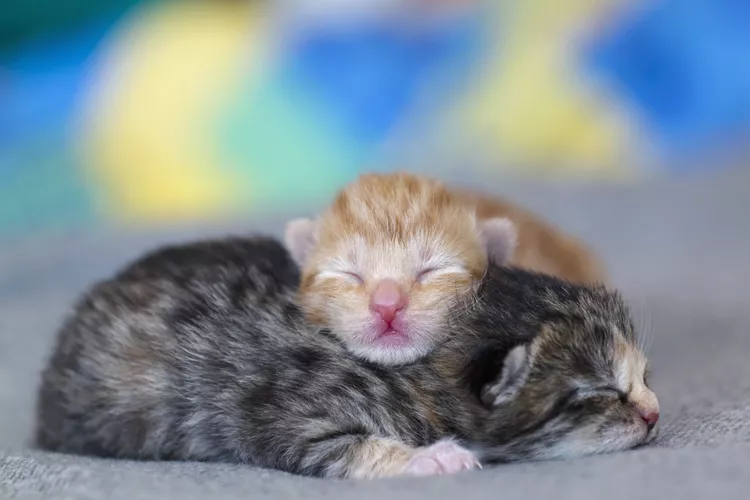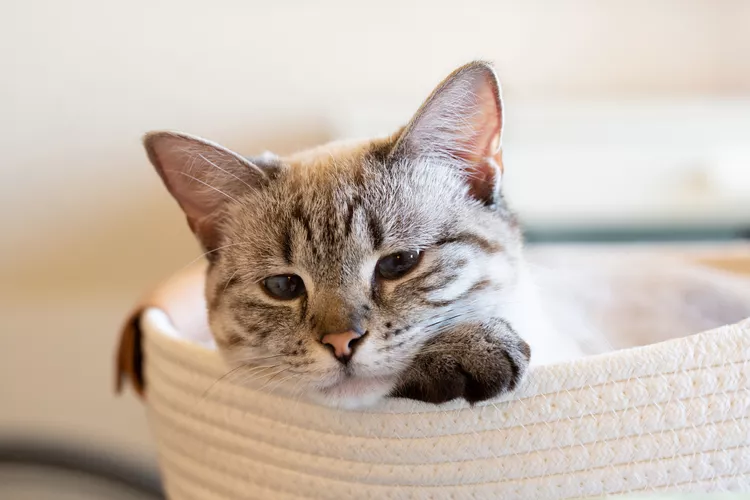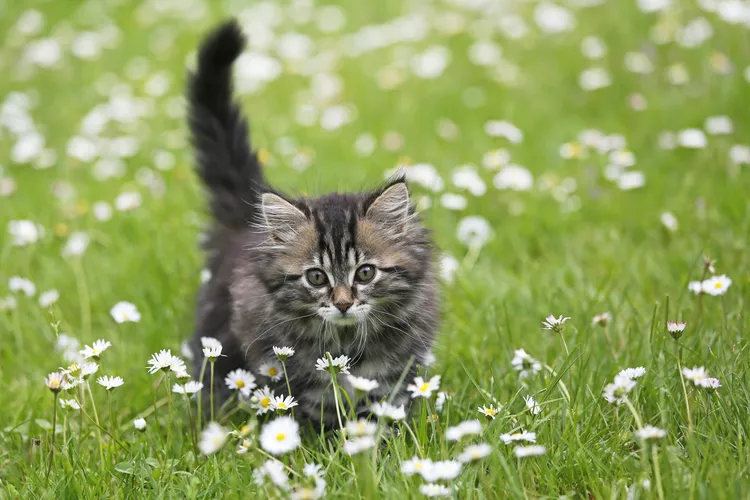The Devon rex is known for their alien-like appearance, marked by large, low-set ears, big eyes, and a triangular face. Aside from striking facial features, they have a thin, wavy coat that comes in a wide range of colors and patterns. The Devon rex is exceptionally active, sociable, and friendly. Their athletic nature makes them great playmates and complements any family configuration. This sweet, mischievous cat is a true gem.
Learn more about the personality, history, care, and health issues of the Devon rex.
Breed Overview
Other Names: Pixie cat
Personality: Active, playful, social
Weight: 6 to 9 pounds
Length: 18 inches
Coat Length: Short hair
Coat Colors: Any colors
Coat Patterns: Solid, tabby, shaded, tortoiseshell, calico, and more
Eye Color: Any color
Lifespan: 9 to 15 years
Hypoallergenic: Yes
Origin: England
Devon Rex Characteristics
The Devon rex is a small but mighty cat with a friendly temperament. While not as vocal as other breeds, these cats make themselves known through their vibrant personality and playful behavior. Devon rexes love to cuddle up against humans and other pets in their family.
History of the Devon Rex
The Devon rex cat was first discovered in Buckfastleigh, Devon, England in 1960 when a woman, Beryl Cox, stumbled across a novel, curly-coated kitten, whom she named Kirlee. Cox initially believed that the kitten was related to the Cornish rex. However, attempts to crossbreed Kirlee with Cornish rex queens proved otherwise.
Kirlee was bred to female Cornish rex cats to try to produce kittens sharing the same coat qualities of the Cornish rex breed. Unfortunately, the mix only bred kittens with straight coats. Later, it was discovered that an unrelated gene mutation was responsible for the wavy coat, among other uniquely Devon rex features. Following this realization, Cox developed a more comprehensive breeding program to preserve Kirlee's mutation.
In 1968, the first Devon rex cat was imported to the United States, and by 1979, the breed received official recognition from the Cat Fanciers' Association. Today, the Devon rex is available from reputable breeders throughout the country.
The unique-looking breed is said to have inspired director Steven Spielberg's E.T., based on his own Devon rex. Also, the live-action version of Disney’s Lady and the Tramp features two Devon rexes, aptly named Devon and Rex.
Devon Rex Care
Caring for your Devon rex is about the same as caring for any cat—it involves grooming, training, and providing exercise. Knowing how best to care for your cat is essential to improving their quality of life.
Grooming
The Devon rex requires minimal grooming. Since the breed's coat only has sparse, breakable hairs, you won't need to brush frequently. Excessive grooming by you—or your cat—can lead to bald patches. Instead, you can gently wipe your cat's fur with a damp cloth weekly. You may periodically wash your Devon rex as well.
Keep an eye out for accumulated ear wax. You should regularly clean inside your cat's ears to ensure that wax buildup doesn't cause any issues.
Shedding
There is no such thing as a fully hypoallergenic cat, but the Devon rex comes close as their very short coat sheds minimally. This is considered one of the lowest maintenance shedding breeds, but you can still expect some light shedding.
Exercise
The Devon rex's outgoing personality has a natural inclination toward exercise. They require ample exercise, which you can conduct through teaching tricks and providing stimulating toys and surfaces on which to climb and jump.
Devon rexes are also known for seeking out lofty spots during playtime or rest, so create spaces that accommodate your cat's energy needs, such as window perches, wall shelves, and multi-level cat trees. And don’t be surprised if you find your cat in some strange spots around the house, such as on top of a door or the top of your refrigerator.
Training
Devon rexes are highly trainable and love to learn, and you can use techniques like clicker training with these smart cats. Training can strengthen the bond between you and your cat while giving much-needed mental stimulation to this intelligent breed.
These cats can be taught to do tricks like play fetch. In fact, Kirlee, the first Devon rex, could not only fetch toys but also walk a tightrope.
Common Health Problems
While this breed isn't known for excessive health ailments, there are several conditions should be aware of.
- Patellar luxation: A luxating patella occurs when a knee cap "pops out" of its regular location. Devon rexes are thought to be genetically predisposed to the condition, which can cause lameness or an unusual gait.
- Hypertrophic cardiomyopathy: Hypertrophic cardiomyopathy (HCM) is the most common type of heart disease in cats. In this condition, the wall of the left side of the heart, which pumps blood out to the rest of the body, thickens with time. This can lead to congestive heart failure, blood clots, and heart arrhythmia. Devon rexes are one of the cat breeds predisposed to this problem.
- Devon rex myopathy: Devon rex myopathy is a muscle weakness condition that usually affects the head and neck. Symptoms typically appear between three weeks to six months of age. This disease of Devon rexes is hereditary and recessive.
- Polycystic kidney disease: Also known as PKD, this is an inherited and incurable disease that is caused by a mutated gene. Cysts form on the kidneys and need to be treated or else they’ll worsen and damage the organs. Its various symptoms include high blood pressure, blood in the urine, nausea, vomiting, weight loss, and lethargy.
- Hip dysplasia: This condition causes the hip joint to develop abnormally. It is a degenerative disease that can cause symptoms like difficulty jumping, stiffness, decreased range of motion, limping, and exercise intolerance.
Appearance
The Devon rex is known for their unique, almost alien appearance. They have large eyes, large noses, high cheekbones, and low-set rounded ears. Sometimes, the ears bear small tufts of fur. Devon rexes have lean, muscular bodies, long, athletic legs, and large toes. Their short, wavy coats and prominent features make the neck and chest appear bony, but this cat is a powerful jumper.
Their short coat ranges from wavy to velvety. Because the Devon rex has a fragile coat with little guard hair, they are prone to developing bald spots from excessive grooming. They also have easily-broken whiskers. For these reasons, it is best to keep Devon rexes indoors.
The Devon rex stops growing at around 12 months and usually weighs between 6 and 9 pounds as an adult.
Diet and Nutrition
Devon rexes have huge appetites and may go to great lengths to snatch food from the table or counter. Make sure not to let human food become a staple of your Devon rex's diet, and avoid giving in to the cat's persistent begging. Instead, ensure that you feed quality cat food and offer treats in moderation for effective weight management.
The Devon rex usually does well on commercial cat food. Because of this energetic breed's high activity level, be sure to form a diet that accommodates accelerated calorie burning. Always consult your veterinarian before creating a homemade diet for your cat.
If your Devon rex is diagnosed with a condition, such as a joint problem, they might benefit from supplements added to their diet. Discuss options with your veterinarian to find the solutions most suitable for your pet.
Where to Adopt or Buy a Devon Rex
You can expect to pay between $600 and $1000 for a Devon rex kitten from a breeder.
You're not likely to find a Devon rex in a standard pet shelter. The best option for adopting one is to visit a shelter that specializes in the breed. However, it will be easier to find a Devon rex for sale through a breeder. Choose a responsible cat breeder who carefully breeds cats for good health and raises them humanely.
Devon Rex Overview
The Devon rex is a great addition to any family. Their playful nature, often accompanied by some mischievousness, is perfect for high-energy owners ready to engage with their cats. The Devon rex's large appetite can get them into trouble but know that they mean no harm. The cats are relatively rare, but consider yourself lucky to have the opportunity to introduce the unique-looking Devon rex into your life.
Pros of Devon Rexes
- Allergy-friendly
- Can learn tricks
- Extremely playful
Cons of Devon Rexes
- Mischievous
- Requires ample attention
- Large appetites
More Cat Breeds and Further Research
You might also be interested in learning more about these similar cat breeds:
Otherwise, check out all of our other cat breed profiles
-
Do Devon rexes make good pets?
Devon rexes make great pets, especially if you're equipped to provide your cat with attention and play. The breed is very active, and needs an owner who can match their energy.
-
What's the difference between a Devon rex and a Sphinx?
One of the most notable differences between a Devon rex and a Sphinx is the Sphinx's total hairlessness. While both cats have unique, elfish faces, they are different breeds.
-
Are Devon rexes rare?
The Devon rex is a relatively rare cat breed. It's unlikely that you will find a Devon rex at a standard animal shelter. Finding a responsible Devon rex breeder is the surest way to track down this special cat.
-
Are Devon rex cats hypoallergenic?
Yes, the Devon rex’s unique coat makes this a hypoallergenic cat. Those with allergies can consider this breed.
